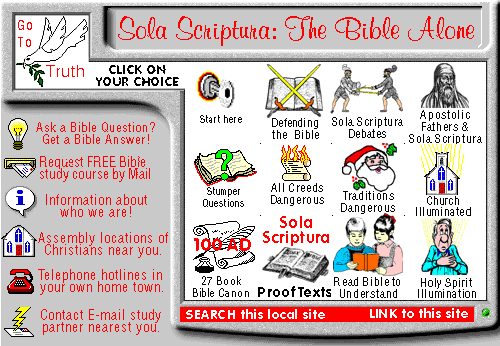
The Holy Spirit gave us the Bible and we can understand it as any other book. Why can we understand newspapers, but not the Bible without the Holy Spirit? This false doctrine makes God incapable of writing to be understood, while men can be understood in the newspaper. It also makes all books on earth understandable without the Holy Spirit, except for the Bible, which we are, according to this false doctrine, prevented from understanding until the Holy Spirit illuminates the meaning for us!
